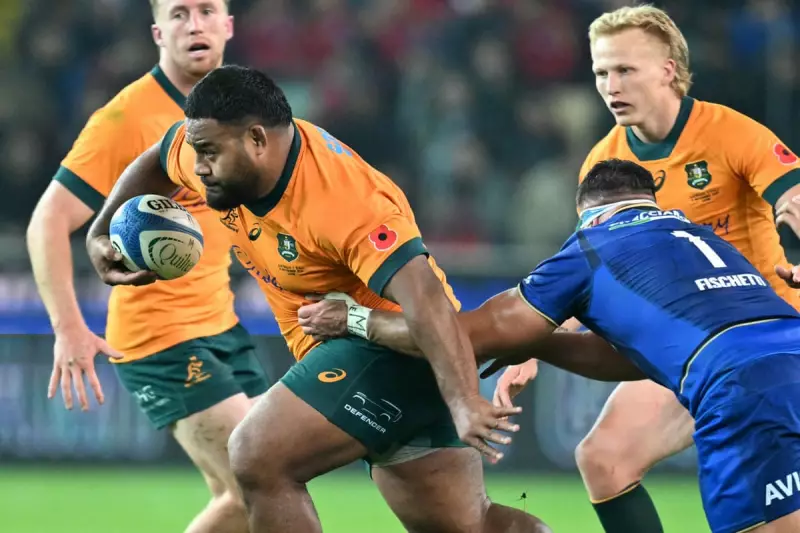
Wallabies' Italian Job Ends in Disappointment
The Australian rugby union team suffered their second consecutive defeat on their European tour, falling 26-19 to Italy at Udine's Friuli stadium on Saturday. This disappointing result leaves serious questions hanging over the Wallabies' development under coach Joe Schmidt and their preparations for the 2027 World Cup.
Flashes of Brilliance Undone by Costly Errors
Despite showing moments of genuine quality, including two first-half tries from front-rowers Matt Faessler and Angus Bell, Australia couldn't maintain their intensity throughout the match. The game served as a perfect microcosm of their current struggles: promising attacks frequently broke down due to unforced errors and poor decision-making.
One particularly frustrating moment came just before half-time when Taniela Tupou collected a pass at pace, evaded one defender, powered through another challenge and surged forward. With the Wallabies building momentum and Italy on the back foot, the opportunity vanished as the ball spilled forward unexpectedly.
The second half brought further disappointment when Australia pressed hard on 68 minutes, hammering at the Italian line through multiple phases only to be held up over the line. This missed opportunity typified an evening where possession rarely translated into points.
World Cup Ranking Concerns Loom Large
The defeat carries significant consequences beyond this particular tour. Australia currently sit seventh in World Rugby's rankings, which could prove problematic for the 2027 World Cup that they're scheduled to host. If this position doesn't improve, the Wallabies would face being drawn alongside one of the world's top six teams in the group phase.
Even if they progressed from such a challenging group, they'd likely encounter another formidable opponent at the first knockout stage. This represents an unnecessary level of difficulty for a rugby nation with Australia's proud history and ambitions.
Schmidt's Influence Shows But Questions Remain
Under Joe Schmidt's pragmatic guidance, the Wallabies have undoubtedly shown improvement in certain areas. The set-piece has become more reliable, defensive structures have tightened, and the team has recruited promising talent from rival codes, including the returning Carter Gordon who scored with a neat side-step.
However, the inconsistency remains troubling. The same team that produced spectacular performances against South Africa in Johannesburg and the British & Irish Lions has also delivered disappointing displays against England and now Italy.
This pattern of one step forward followed by one step back challenges the narrative of a genuine Wallabies revival. While flashes of brilliance suggest the raw materials exist, the inability to deliver steady, composed rugby week after week continues to undermine progress.
The outlines of a proper team are visible - an improving set-piece, better defensive organisation, and several genuine match-winners - but the execution remains uneven. Schmidt has provided the Wallabies with a clear plan, but converting that plan into consistent performances requires developing habits that currently seem elusive.
As the Wallabies continue their European tour, the fundamental question remains unanswered: is it better to be consistently good or occasionally brilliant? For now, Australia find themselves trapped between these two states, capable of breathtaking rugby one moment and basic errors the next. Until they find the rhythm that transforms potential into consistent performance, they'll remain a team of promising flashes rather than convincing finishes.





